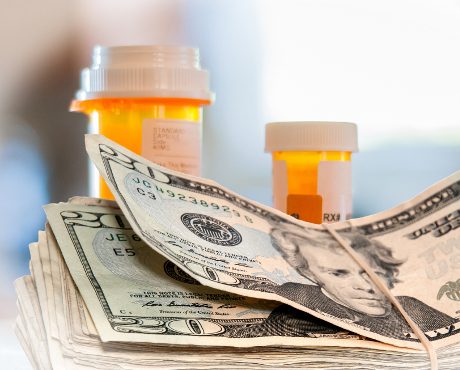It’s been a painful year for Teva Pharmaceutical Industries Ltd (ADR) (NYSE:TEVA) stock owners. A string of strategic missteps, delayed drug launches, and legal headaches amid the increasingly competitive generics market have sent the Teva stock shares down a whopping 45% over the past 12 months.
Ouch.
Naturally, shareholders have been calling for management and strategy changes—including a spin-off of Teva’s branded segment—to breathe life into the flailing stock.
Well, changes are definitely coming, because the company said on Tuesday that Chief Executive Officer Erez Vigodman would be stepping down immediately, and would be replaced by Chairman Yitzhak Peterburg on an interim basis. The move follows the abrupt exit of generics CEO Siggi Olafsson in December 2016, so things are certainly being shaken up at Teva. (Source: “Teva Appoints Dr. Yitzhak Peterburg as Interim Chief Executive Officer, Succeeding Erez Vigodman,” Teva Pharmaceutical Industries Ltd (ADR), February 6, 2017.)
So, will the changes at Teva provide the fuel needed for a prolonged turnaround in TEVA stock? Well, let’s figure out how we even got to these basement levels first.
Vigodman Slam
Vigodman joined Teva with a reputation of being sort of a turnaround expert, but a costly debt-saddling buying spree in recent years is largely what did him in.
Thanks in part to Teva’s $40.5-billion acquisition of Actavis and $2.3-billion deal with Mexican drugmaker Rimsa (which led both sides to sue each other), Teva now has $36.0 billion in debt on its balance sheet, giving it very little financial flexibility to raise money or deal with setbacks.
Last week, for example, TEVA stock fell to 10-year lows after losing a patent challenge for its blockbuster drug “Copaxone,” the world’s leading multiple sclerosis (MS) treatment, for which the company derives over one-third of its operating profit.
It’s no surprise, then, that Teva sought out someone with more pharmaceutical experience, as well as capital allocation discipline.
Needless to say, shareholders hope that Peterburg’s that guy.
“The Company is focusing on executing its strategic priorities to transform Teva, with immediate focus on realizing the cost synergies and strategic benefits of the Actavis Generics acquisition,” said Peterburg. “I look forward to working with the entire Teva team to conduct a thorough review of the business to find additional opportunities to enhance value for shareholders.” (Source: Ibid.)
Dividend Health
Of course, as dividend investors, our primary concern is the trajectory of free cash flow going forward. But here, the news is also uncertain.
On the surface, Teva’s trailing 12-month operating cash flow of $5.4 billion covers its cash dividends of $1.4 billion securely enough. However, when you consider Teva’s downbeat outlook for 2017 (it cut its full-year revenue guidance by $1.0 billion last month), as well as the imminent generic competition for Capaxone, it’s tough not to be concerned over a possible dividend cut.
Teva’s payout ratio of 79% also isn’t too comforting.
The Bottom Line on TEVA Stock
Teva stock is certainly intriguing at these low price levels. Despite the company’s recent missteps, Teva Pharmaceutical remains the world’s largest generic drug manufacturer, giving it the massive scale, financial muscle, and product pipeline to earn outsized returns on capital once its current headaches subside. Moreover, the company’s paltry forward price-to-earnings ratio of 6.7 looks pretty compelling.
However, given the extreme near-term competitive and cash flow uncertainty surrounding Teva, I’d wait until Peterburg shows some progress first before even thinking about jumping in.
